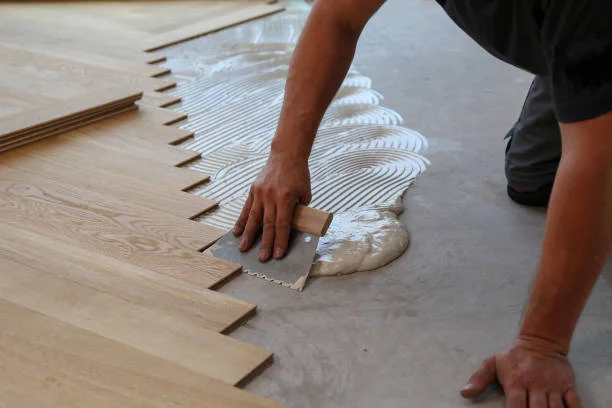Cost of Blocks in Nigeria: How Much is Block in Nigeria
On the lookout for the list of the cost of blocks in Nigeria? Do you want to know how much is block in Nigeria currently? This article contains the useful information you will be needing on that.
Along with food and clothing, housing is one of man’s three fundamental requirements. Prehistoric man lived in caves and eventually started building walls out of mud. Many masonry techniques evolved, and they eventually became a structural feature of the shelter.
Burnt brick masonry and stone masonry were prominent in the beginning. With the rising demand for construction, it is now more important than ever to use less expensive and faster procedures and materials including which sand, stones, and blocks are included. You may as well check out our updated price list of sand and stones in Nigeria.
What are Blocks Useful for?
Concrete blocks are a type of construction material that allows for both cheaper and speedier construction than traditional bricks. A concrete block is primarily utilized in the construction of walls as a building material. It’s also known as a concrete masonry unit (CMU).
A concrete block is one of the various precast concrete building components. The word “precast” refers to how the blocks are made and hardened before being delivered to the project site.
Most concrete blocks have one or more hollow chambers, and the sides might be smooth or patterned. To build the appropriate length and height of the wall, concrete blocks are stacked one at a time and held together using fresh concrete mortar.
Which Category Of People Need This Article?
- Quantity surveyors
- Civil and Construction engineers
- Construction companies
- Architects
- Soon-to-be homeowners closely monitoring the construction of their homes; among others.
It’s better to start with the general topic before getting into the specifics of the many types of blocks we have. The following is a list of the costs of blocks in Nigeria.
Cost Of Blocks In Nigeria
The price varies based on where in the country you reside. The average cost of a block in Nigeria is between ₦170 and ₦250. The cost of blocks in Nigeria is broken down in the table below. This cost is also determined by the size, which might be 6-inches, 9-inches, or less depending on the situation.
The price varies depending on the type of block, as there are several sorts based on quality and purpose, but the most popular are the two major ones, which will be compared later in this article. Regular blocks and stone dust blocks are the two major types.
Cost Of Blocks In Nigeria
To effectively answer your question of how much is block in nigeria? we will present them below according to their types.
Cost Of Regular Blocks
| Size | Price Range(₦) |
|---|---|
| 6-Inches | 250-280 |
| 9-Inches | 280-300 |
Cost Of Stone Dust Blocks
| Size | Price Range(₦) |
|---|---|
| 6-inches | 290-320 |
| 9-inches | 320-350 |
Cost Of Aesthetic Blocks
| Type of Aesthetic Block | Price Range(₦) |
|---|---|
| White Glass Block | 1,800-2,200 |
| Crystal Glass Block | 1,500-2,000 |
| Clay Ventilation Block | 350-400 |
| Crystal Green Glass Block | 1,700-2,300 |
| Spanish Block | 7,500-8,000 |
| Parallel Clear Glass Block | 1,400-1,700 |
| Polystyrene Foam Blocks and Sheets | 2,000-2,500 |
Cost of Hollow Concrete Blocks
| Size(Inches) | Price Range(₦) |
|---|---|
| 5 | 200-250 |
| 6 | 190-220 |
| 9 | 180-190 |
Cost of Solid Concrete Blocks
| Size(inches) | Price Range(₦) |
|---|---|
| 5 | 170-180 |
| 6 | 190-210 |
| 9 | 220-230 |
Types Of Building Blocks
Concrete blocks are available in a variety of modular sizes that vary by country. However, their size and bulk will be such that they will be easy to manage.
Furthermore, in order to avoid misunderstanding with slabs and panels, the height of the blocks should not exceed six times their length.
Solid Concrete Blocks
Solid concrete blocks, which are massive and made from dense aggregate, are frequently employed in construction works. They are extremely robust and give excellent structural stability. Solid blocks are preferred for big masonry projects, such as load-bearing walls. In comparison to bricks, they come in larger sizes.
As a result, concrete masonry takes less time to construct than brick masonry. In addition, the bigger size of a solid block allows for faster structure construction when compared to constructions produced with concrete brick walls.
Hollow Concrete Blocks
Hollow concrete blocks are standard-sized rectangular hollow blocks constructed of high- or low-density cast concrete.
In masonry construction, hollow concrete blocks are more typically employed. It speeds up the construction process, saves cement and steel, and lowers labor costs on the job site.
These blocks reduce the natural weight of masonry structures while also improving wall physical qualities like noise and thermal insulation. They also have areas where electrical conduits, water, and soil pipelines can be hidden. Portland cement and aggregate, mainly sand and fine gravel, are utilized as raw materials for high-density blocks.
Industrial wastes, such as fly ash or bottom ash, are used as the principal raw materials for low-density blocks, which are also known as cinder blocks or breeze blocks in different regions of the world.
Factors Responsible For Fluctuation In the Cost of Blocks In Nigeria
As a Nigerian, you should also assume that the price would not remain the same as when you last purchased blocks. This is why we’ve compiled a list of factors that could affect the cost of blocks in Nigeria.
Location
This is a major determinant of the cost of blocks in Nigeria especially. A block industry’s site may be relatively far away from the recipient of the blocks. In addition, the proximity of the sector to residential areas could be a restricting factor, causing prices to rise.
Furthermore, blocks appear to be more expensive in metropolitan regions, but they appear to be less expensive in rural areas. This is due to the sort of block that was utilized in the area.
Availability and Cost of Raw Materials
The proximity of the raw material supplier to the industry also influences the price at which they would sell their blocks. Not only that, but the amount spent on these raw materials has an impact on the entire price of the blocks. Blocks may be sold at a lower price if they are cheaper and vice versa.
Change In Government Policies
The cost of blocks in Nigeria may also be influenced by government policies. Glass is a common raw material in the production of blocks. In Nigeria, this glass is not widely available or manufactured.
If the government decides to prohibit its importation, which will also result in a scarcity of glass, the price of blocks will skyrocket.
Conclusion
This article has discussed primarily all you need to know about blocks: the cost of blocks in Nigeria, how these blocks vary in use, and why their prices may be altered later on, especially in a country like Nigeria.
If however, you still have any questions, please utilize the comment section below. It will be attended to as soon as it is seen. Thank you.

![Cost Of Door Frames In Nigeria ([year]) Cost of Door Frames in Nigeria](https://eucarlrealty.com/wp-content/uploads/2022/12/istockphoto-831532930-612x612-1.webp)

![Cost Of Painting A 3-Bedroom Flat In Nigeria ([year]) Cost of people painting a 3-bedroom flat in Nigeria](https://eucarlrealty.com/wp-content/uploads/2022/11/istockphoto-503457156-612x612-1.webp)
